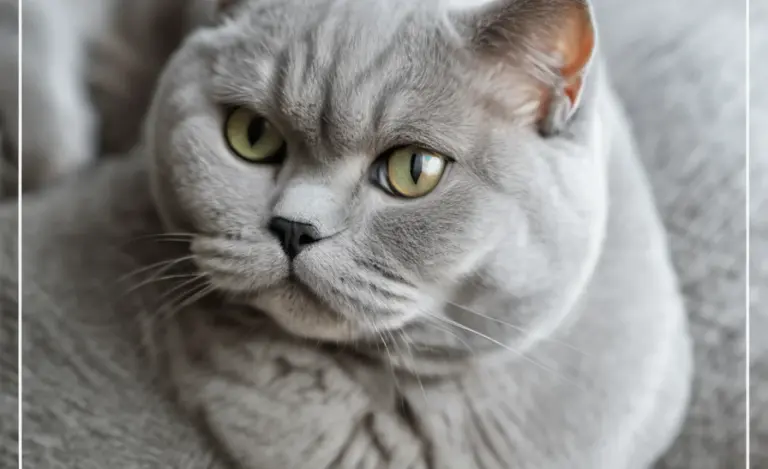Common Health Problems in British Shorthairs + Easy Tips
British Shorthairs are generally healthy, but they’re prone to certain issues like hypertrophic cardiomyopathy (HCM), polycystic kidney disease (PKD), and arthritis. Regular vet check-ups, a balanced diet, maintaining a healthy weight, and being aware of breed-specific predispositions are key to prevention and early detection. Early diagnosis and management can significantly improve your cat’s quality of life.
Bringing a British Shorthair into your home means welcoming a loving, laid-back companion. These cats are known for their plush coats and charming personalities. However, like all breeds, they can be prone to certain health issues. Understanding these potential problems and knowing how to prevent them is crucial for keeping your furry friend happy and healthy. Don’t worry; we’ll walk through everything step by step, making it easy to provide the best care for your British Shorthair.
In this guide, we’ll cover the most common health problems seen in British Shorthairs and give you practical tips for preventing them. From heart health to joint care, we’ll make sure you’re well-equipped to give your British Shorthair a long and joyful life. Let’s get started!
Common Health Problems in British Shorthairs
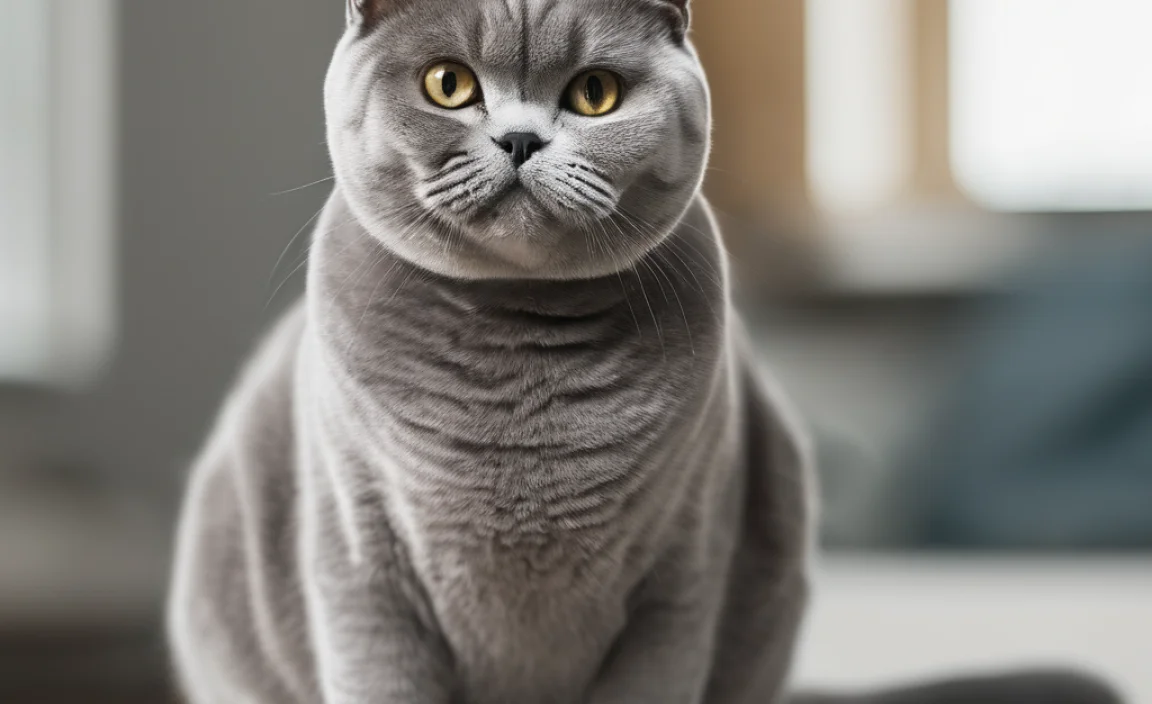
British Shorthairs are generally robust cats, but they have predispositions to certain health conditions. Being aware of these potential issues can help you take proactive steps to keep your cat healthy.
1. Hypertrophic Cardiomyopathy (HCM)
Hypertrophic cardiomyopathy (HCM) is the most common heart disease in cats, including British Shorthairs. It causes the heart muscle to thicken, making it harder for the heart to pump blood efficiently. According to the Cornell Feline Health Center, early detection and management are essential for improving a cat’s quality of life with HCM.
Symptoms of HCM:
- Lethargy
- Difficulty breathing
- Coughing
- Loss of appetite
- Sudden hind limb paralysis (due to blood clots)
Prevention and Management:
- Regular Veterinary Check-ups: Annual check-ups can help detect heart murmurs or other signs of heart disease early.
- Echocardiograms: If your vet suspects HCM, an echocardiogram (ultrasound of the heart) can confirm the diagnosis.
- Genetic Testing: Although not yet widely available, genetic testing can help identify cats at risk.
- Medication: If your cat is diagnosed with HCM, your vet may prescribe medication to manage the condition and reduce the risk of complications.
2. Polycystic Kidney Disease (PKD)
Polycystic Kidney Disease (PKD) is an inherited condition where cysts form in the kidneys, eventually leading to kidney failure. It’s particularly prevalent in Persian cats and can also affect British Shorthairs. Early detection can help slow the progression of the disease.
Symptoms of PKD:
- Increased thirst and urination
- Lethargy
- Weight loss
- Poor appetite
- Vomiting
Prevention and Management:
- Genetic Screening: If you’re getting a British Shorthair kitten, ask the breeder if they screen their cats for PKD.
- Ultrasound: Regular kidney ultrasounds can help detect cysts early.
- Diet Management: A kidney-friendly diet can help reduce the workload on the kidneys.
- Medications: Certain medications can help manage the symptoms and slow the progression of the disease.
3. Arthritis
Arthritis, or degenerative joint disease, is a common problem in older cats, including British Shorthairs. It causes inflammation and pain in the joints, leading to reduced mobility and quality of life. The RSPCA notes that maintaining a healthy weight is crucial in preventing and managing arthritis in cats.
Symptoms of Arthritis:
- Stiffness
- Reduced activity
- Difficulty jumping or climbing
- Irritability when touched
- Limping
Prevention and Management:
- Weight Management: Keep your cat at a healthy weight to reduce stress on the joints.
- Joint Supplements: Glucosamine and chondroitin supplements can help support joint health.
- Comfortable Bedding: Provide soft, comfortable beds to cushion joints.
- Regular Exercise: Gentle exercise can help maintain joint mobility.
- Medications: Pain relievers and anti-inflammatory drugs can help manage pain and inflammation.
4. Dental Disease
Dental disease is highly prevalent in cats, affecting up to 70% of cats by the age of three, according to Purina. British Shorthairs are no exception. Dental problems can lead to pain, infection, and other health issues if left untreated.
Symptoms of Dental Disease:
- Bad breath
- Excessive drooling
- Difficulty eating
- Red or swollen gums
- Loose teeth
Prevention and Management:
- Regular Brushing: Brush your cat’s teeth daily with a cat-specific toothbrush and toothpaste.
- Dental Treats and Food: Use dental treats and food designed to reduce plaque and tartar buildup.
- Professional Cleanings: Schedule regular professional dental cleanings with your vet.
5. Obesity
British Shorthairs are prone to weight gain, which can lead to various health problems like diabetes, arthritis, and heart disease. Maintaining a healthy weight is crucial for their overall well-being.
Symptoms of Obesity:
- Difficulty feeling ribs
- Lack of a visible waistline
- Reduced activity
- Difficulty grooming
Prevention and Management:
- Balanced Diet: Feed your cat a high-quality, balanced diet in appropriate portions.
- Controlled Feeding: Avoid free-feeding and measure out meals to prevent overeating.
- Regular Exercise: Encourage physical activity through play and interactive toys.
- Regular Weigh-ins: Monitor your cat’s weight and adjust their diet as needed.
6. Bladder Stones and Urinary Issues
British Shorthairs, like many cat breeds, can develop bladder stones or experience other urinary issues. These problems can cause discomfort and, if left untreated, can lead to serious complications.
Symptoms of Bladder Stones and Urinary Issues:
- Frequent urination
- Straining to urinate
- Blood in urine
- Urinating outside the litter box
- Lethargy
Prevention and Management:
- Adequate Hydration: Ensure your cat has access to fresh water at all times. Consider using a cat water fountain to encourage drinking.
- Special Diet: Your vet may recommend a special diet formulated to prevent bladder stones and promote urinary health.
- Stress Reduction: Minimize stress in your cat’s environment, as stress can contribute to urinary issues.
- Regular Vet Check-ups: Regular check-ups can help detect urinary problems early.
Prevention Tips for Common Health Problems
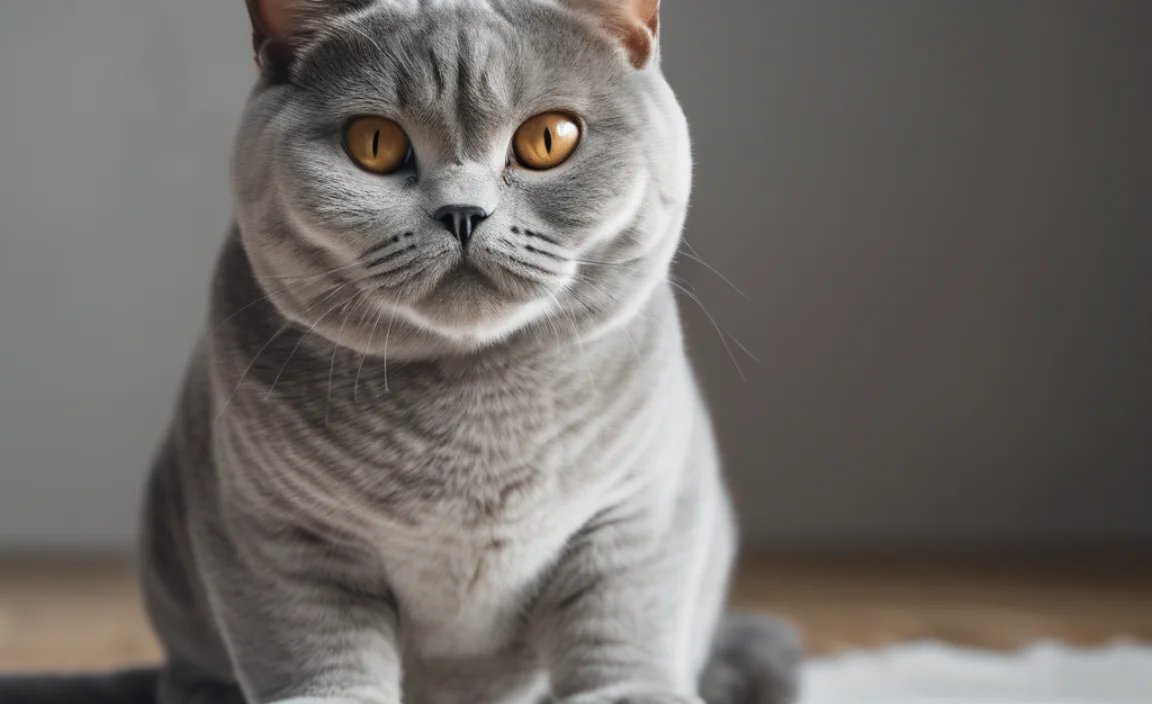
Preventing health problems in your British Shorthair involves a combination of good nutrition, regular veterinary care, and a healthy lifestyle. Here are some essential tips to help keep your cat in top condition.
1. Regular Veterinary Check-ups
Annual check-ups are crucial for early detection and prevention of health problems. Your vet can identify potential issues before they become serious and provide tailored advice for your cat’s specific needs.
2. Balanced Diet
A high-quality, balanced diet is essential for maintaining your British Shorthair’s overall health. Look for cat food that contains the right balance of protein, fats, and carbohydrates.
3. Weight Management
Maintaining a healthy weight is crucial for preventing obesity-related health problems. Monitor your cat’s weight and adjust their diet and exercise as needed.
4. Dental Care
Regular dental care can prevent dental disease and its associated complications. Brush your cat’s teeth daily and schedule regular professional cleanings with your vet.
5. Exercise and Play
Encourage regular exercise and play to keep your cat physically and mentally stimulated. This can help prevent obesity and maintain joint health.
6. Stress Reduction
Minimize stress in your cat’s environment to prevent stress-related health problems. Provide a safe, comfortable home with plenty of opportunities for play and relaxation.
7. Genetic Screening
If you’re getting a British Shorthair kitten, ask the breeder if they screen their cats for genetic conditions like PKD and HCM. This can help you make an informed decision about your cat’s health.
Creating a Healthy Lifestyle for Your British Shorthair
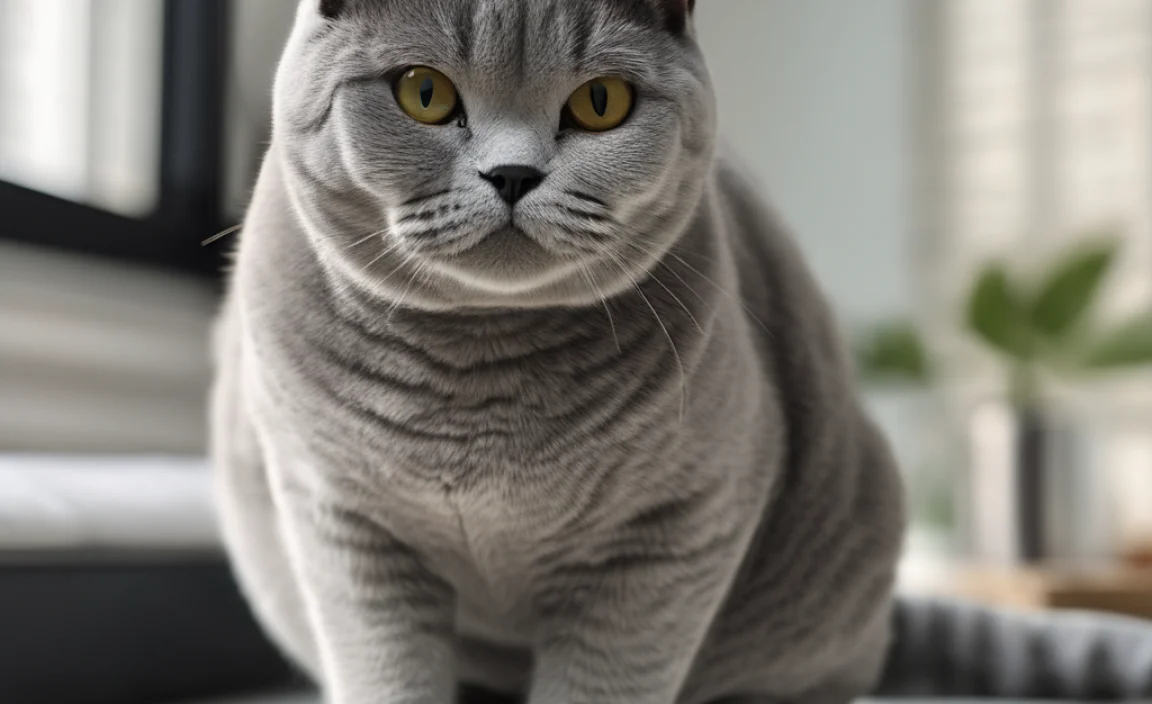
Beyond the specific prevention tips, creating a healthy lifestyle for your British Shorthair involves a holistic approach that considers their physical and mental well-being.
1. Environmental Enrichment
Provide plenty of toys, scratching posts, and climbing opportunities to keep your cat entertained and stimulated. A stimulating environment can help prevent boredom and behavioral problems.
2. Social Interaction
British Shorthairs are social cats and enjoy interacting with their owners. Spend time playing with your cat, grooming them, and providing affection to strengthen your bond.
3. Safe Environment
Ensure your home is safe for your cat by removing potential hazards like toxic plants, cleaning products, and medications. Keep electrical cords out of reach and provide a secure outdoor space if your cat goes outside.
4. Regular Grooming
British Shorthairs have thick coats that require regular grooming to prevent matting and hairballs. Brush your cat several times a week to keep their coat healthy and shiny.
Understanding Breed-Specific Predispositions
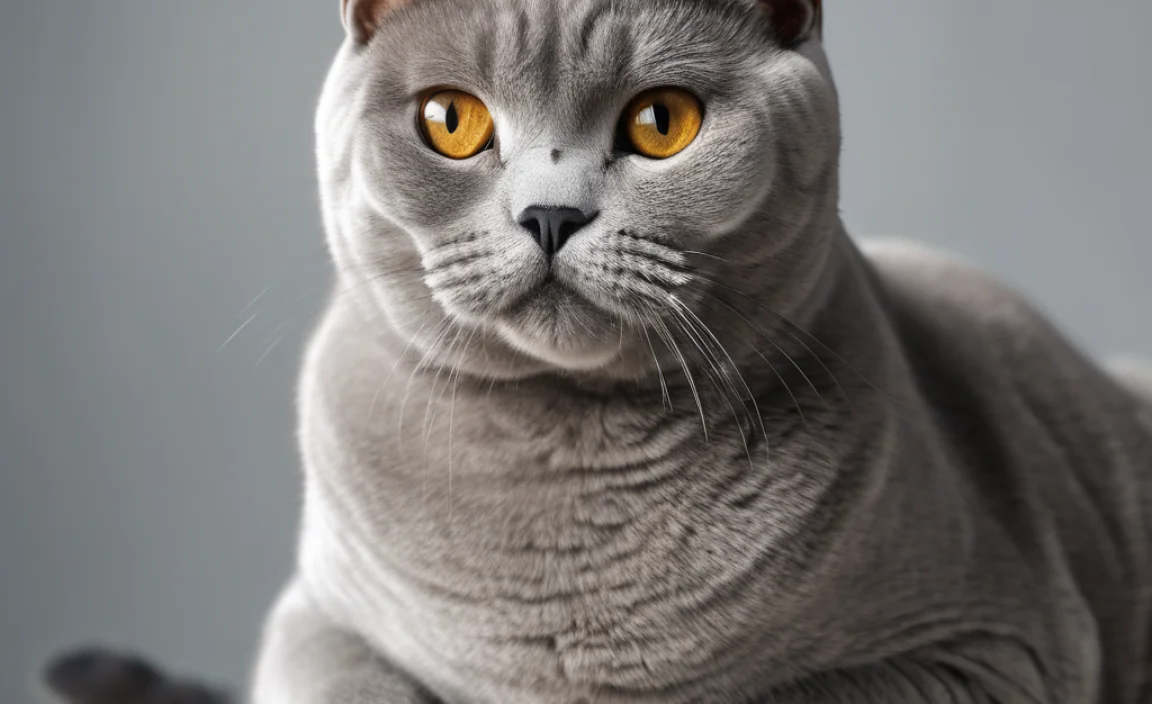
Being aware of the breed-specific predispositions of British Shorthairs is essential for providing the best possible care. Here’s a summary of the common health problems and their prevention tips:
| Health Problem | Symptoms | Prevention Tips |
|---|---|---|
| Hypertrophic Cardiomyopathy (HCM) | Lethargy, difficulty breathing, coughing | Regular vet check-ups, echocardiograms, genetic testing |
| Polycystic Kidney Disease (PKD) | Increased thirst and urination, lethargy, weight loss | Genetic screening, ultrasound, diet management |
| Arthritis | Stiffness, reduced activity, difficulty jumping | Weight management, joint supplements, comfortable bedding |
| Dental Disease | Bad breath, excessive drooling, difficulty eating | Regular brushing, dental treats, professional cleanings |
| Obesity | Difficulty feeling ribs, lack of a visible waistline | Balanced diet, controlled feeding, regular exercise |
| Bladder Stones and Urinary Issues | Frequent urination, straining to urinate, blood in urine | Adequate hydration, special diet, stress reduction |
When to Consult Your Veterinarian
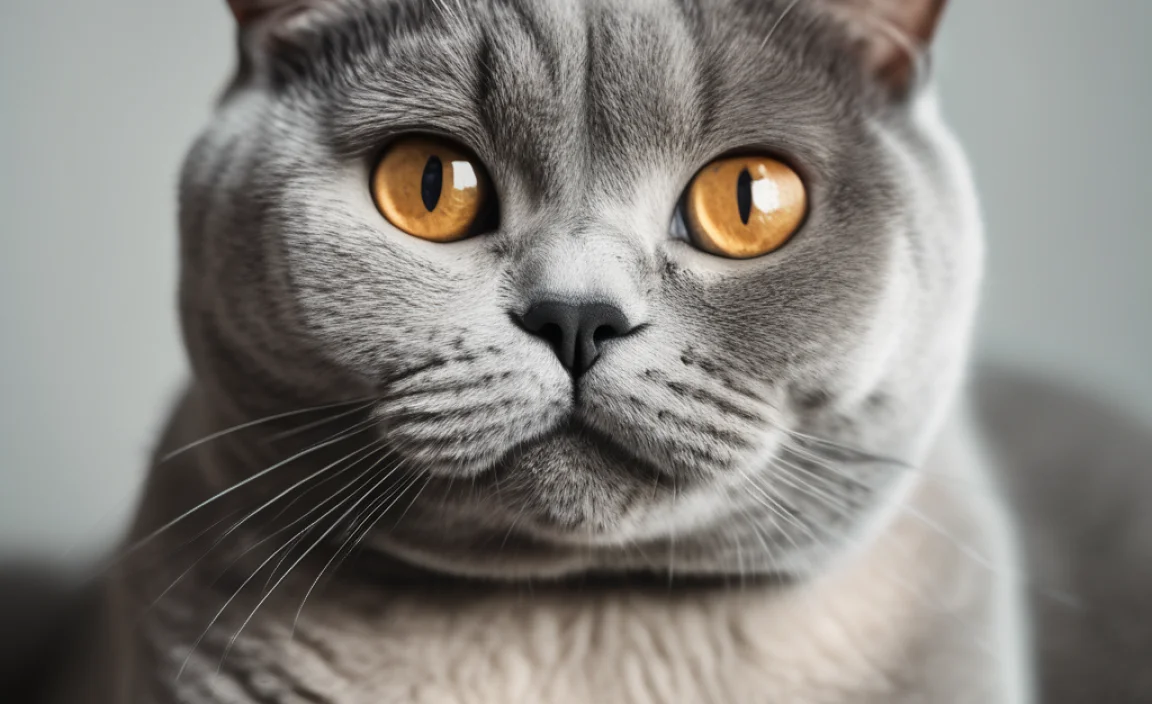
It’s essential to know when to seek professional veterinary care for your British Shorthair. Contact your vet immediately if you notice any of the following:
- Sudden changes in behavior
- Loss of appetite
- Difficulty breathing
- Lethargy
- Vomiting or diarrhea
- Blood in urine or stool
- Signs of pain or discomfort
Early intervention can significantly improve the outcome for many health conditions.
FAQs
1. Are British Shorthairs generally healthy cats?
Yes, British Shorthairs are generally considered a healthy breed. However, like all breeds, they are prone to certain health conditions. Regular vet check-ups and a healthy lifestyle can help prevent many of these issues.
2. What is the most common health problem in British Shorthairs?
Hypertrophic cardiomyopathy (HCM) is one of the most common health problems in British Shorthairs. It’s a heart condition that causes the heart muscle to thicken, making it harder for the heart to pump blood efficiently.
3. How can I prevent my British Shorthair from becoming overweight?
To prevent your British Shorthair from becoming overweight, feed them a balanced diet in appropriate portions. Avoid free-feeding and encourage regular exercise through play and interactive toys. Monitor their weight and adjust their diet as needed.
4. How often should I brush my British Shorthair’s teeth?
Ideally, you should brush your British Shorthair’s teeth daily. Regular brushing helps prevent dental disease and its associated complications. Use a cat-specific toothbrush and toothpaste.
5. What are the signs of arthritis in British Shorthairs?
Signs of arthritis in British Shorthairs include stiffness, reduced activity, difficulty jumping or climbing, irritability when touched, and limping. If you notice any of these signs, consult your veterinarian.
6. Is genetic testing available for British Shorthairs?
Genetic testing is available for some conditions, such as PKD. While genetic testing for HCM is evolving, it’s not yet widely available. Ask your breeder if they screen their cats for genetic conditions.
7. What should I feed my British Shorthair to keep them healthy?
Feed your British Shorthair a high-quality, balanced diet that contains the right balance of protein, fats, and carbohydrates. Look for cat food that is specifically formulated for adult cats and consider their age, activity level, and any specific health needs.
Conclusion
Caring for a British Shorthair involves understanding their breed-specific health predispositions and taking proactive steps to prevent common problems. By providing regular veterinary care, a balanced diet, and a healthy lifestyle, you can help your British Shorthair live a long, happy, and healthy life. Remember, early detection and management are key to addressing any health concerns that may arise. With your love and care, your British Shorthair will thrive as a cherished member of your family.




